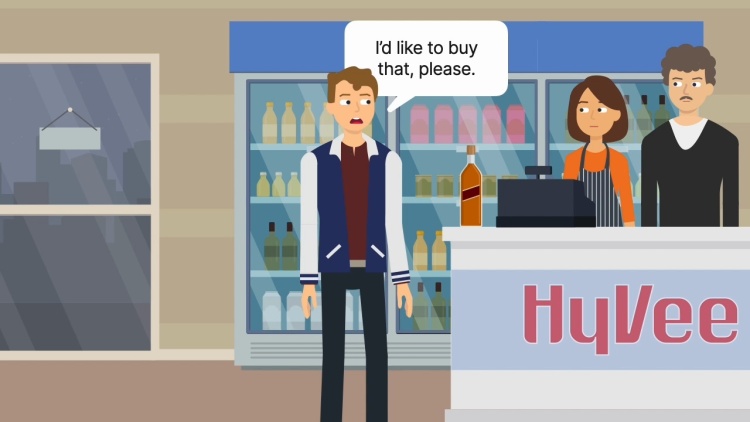South Dakota v. Hy Vee Food Stores, Inc.
Supreme Court of South Dakota
533 N.W.2d 147 (1995)
- Written by Caroline Milne, JD
Facts
Hy Vee Food Stores, Inc. (Hy Vee) (defendant) sold alcohol to a 19-year-old college student who was working as part of an undercover sting operation. When the student brought a bottle of whiskey to the counter, the cashier—who was too young to sell liquor—asked another cashier to ring up the sale. The second cashier took the student’s money and completed the sale. Neither cashier asked for the student’s identification to verify the purchaser was at least 21 years of age. Hy Vee was subsequently found guilty of violating a statute that made it a misdemeanor to sell alcohol to a person under the age of 21. The judge imposed a $200 fine on Hy Vee as a corporate entity. Neither employee who interacted with the student was charged with a crime. Hy Vee appealed, and the circuit court affirmed. On appeal to the Supreme Court of South Dakota, Hy Vee argued that imposing vicarious criminal liability on a corporation for the unlawful actions of its employees violated Hy Vee’s substantive due process rights under both the South Dakota and the United States Constitutions. Hy Vee further argued that its corporate policy against selling alcohol to minors insulated the corporation from vicarious liability.
Rule of Law
Issue
Holding and Reasoning (Konenkamp, J.)
Dissent (Amundson, J.)
What to do next…
Here's why 911,000 law students have relied on our case briefs:
- Written by law professors and practitioners, not other law students. 47,100 briefs, keyed to 997 casebooks. Top-notch customer support.
- The right amount of information, includes the facts, issues, rule of law, holding and reasoning, and any concurrences and dissents.
- Access in your classes, works on your mobile and tablet. Massive library of related video lessons and high quality multiple-choice questions.
- Easy to use, uniform format for every case brief. Written in plain English, not in legalese. Our briefs summarize and simplify; they don’t just repeat the court’s language.






